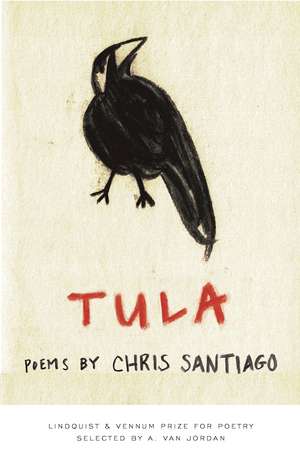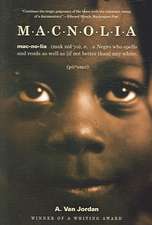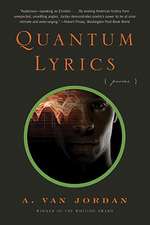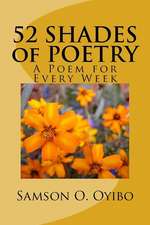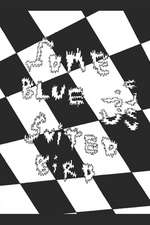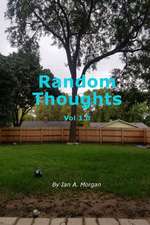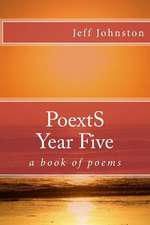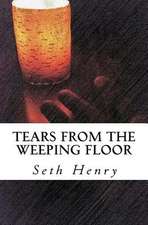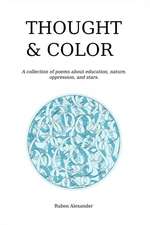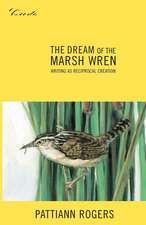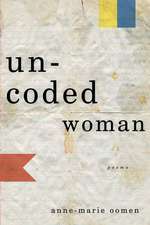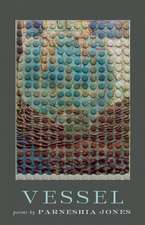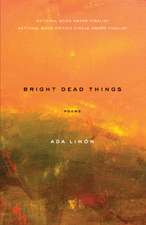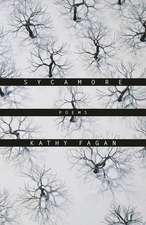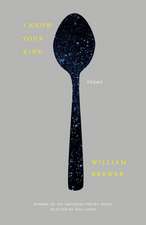Tula: Poems
Autor Chris Santiago Editat de A. Van Jordanen Limba Engleză Paperback – 13 dec 2016
Tula: a ruined Toltec capital; a Russian city known for its accordions; Tagalog for “poem.”
Prismatic, startling, rich with meaning yet sparely composed, Chris Santiago’s debut collection of poems begins with one word and transforms it, in a dazzling sleight of hand, into a multivalent symbol for the immigrant experience. Tula: Santiago reveals to readers a distant land devastated by war. Tula: its music beckons in rhythms, time signatures, and lullabies. Tula: can the poem, he seems to ask, build an imaginative bridge back to a family lost to geography, history, and a forgotten language?
Inspired by the experiences of the “blood stranger”—the second-generation immigrant who does not fully acquire the language of his parents—Tula paints the portrait of a mythic homeland that is part ghostly underworld, part unknowable paradise. Language splinters. Impossible islands form an archipelago across its landscape. A mother sings lullabies and a father works the graveyard shift in St. Paul—while in the Philippines, two dissident uncles and a grandfather send messages and telegrams from the afterlife.
Deeply ambitious, a collection that examines the shortcomings and possibilities of both language and poetry themselves, Tula announces the arrival of a major new literary talent.
Prismatic, startling, rich with meaning yet sparely composed, Chris Santiago’s debut collection of poems begins with one word and transforms it, in a dazzling sleight of hand, into a multivalent symbol for the immigrant experience. Tula: Santiago reveals to readers a distant land devastated by war. Tula: its music beckons in rhythms, time signatures, and lullabies. Tula: can the poem, he seems to ask, build an imaginative bridge back to a family lost to geography, history, and a forgotten language?
Inspired by the experiences of the “blood stranger”—the second-generation immigrant who does not fully acquire the language of his parents—Tula paints the portrait of a mythic homeland that is part ghostly underworld, part unknowable paradise. Language splinters. Impossible islands form an archipelago across its landscape. A mother sings lullabies and a father works the graveyard shift in St. Paul—while in the Philippines, two dissident uncles and a grandfather send messages and telegrams from the afterlife.
Deeply ambitious, a collection that examines the shortcomings and possibilities of both language and poetry themselves, Tula announces the arrival of a major new literary talent.
Preț: 84.12 lei
Nou
Puncte Express: 126
Preț estimativ în valută:
16.10€ • 16.85$ • 13.40£
16.10€ • 16.85$ • 13.40£
Carte disponibilă
Livrare economică 10-24 martie
Preluare comenzi: 021 569.72.76
Specificații
ISBN-13: 9781571314888
ISBN-10: 1571314881
Pagini: 96
Dimensiuni: 140 x 216 mm
Greutate: 0.18 kg
Editura: Milkweed Editions
Colecția Milkweed Editions
ISBN-10: 1571314881
Pagini: 96
Dimensiuni: 140 x 216 mm
Greutate: 0.18 kg
Editura: Milkweed Editions
Colecția Milkweed Editions
Recenzii
Praise for Tula
"'Like it or not,' writes Christopher Santiago, 'the Dead keep coming.' This haunted (and deeply haunting) collection makes us aware of the spectral legions who might otherwise be lost to historical feeling in our time. Interweaving personal reflections with diasporic etymologies, a fractured family history, and close ecological observation, Tula discloses the many ways that our nation’s incursions into the Pacific Rim region may contribute to the political unconscious of contemporary American poetry. Throughout the collection, Santiago testifies to the sustainable resource of domestic care with remarkable tenderness and acuity. Here, the immense magnitudes and buzzing minutiae of a world resonate together in 'music the stars would make if they // were as small as they looked.'"—Srikanth Reddy, the author of Facts for Visitors
"Chris Santiago’s poems encourage us to see English the way an immigrant does—as something different, to be broken and remade. Through this difference in language, Santiago makes readers aware of both the poet’s otherness and their own. This is a book that both transports us and transforms us."—Viet Thanh Nguyen, the author of The Sympathizer
“In a hypnotic blend of languages and lands, Tula captures the voice of a world we are happy to inhabit. The lines are taut and spare; the scope is both intimate and communal. What surprises me most is the ability to move seamlessly between the exterior world to the depths of the interiority of these speakers. It’s not so much that the language here is new as that the message is so urgently original. Or, as the poet puts it, ‘No stroke or syllable has ever been made to mean’ more. There’s a celebration of silence involved in these poems, but, even more so, there’s the love of making connections beyond what one says. Reading these poems feels as if ‘A door opens and your name / is called & all at once you aren’t cut off / from the rest of the world anymore: you are / the rest of the world.’”—A. Van Jordan, the author of M-A-C-N-O-L-I-A
"Tula: 'a ruined Tolte capital in Nahuatl,' yet in Chileno, 'slang for cock. Also nightshade, bell flower,' and in English, 'square-rigged for new continents.' The mysteries of language, the vagaries of sound and syntax, the reverberations of alternate meanings as words flood the ear: these are the subject of Christopher Santiago’s gorgeous debut collection. 'It was homegrown and inequitable': this poet’s imagination, testing at every moment the relationship of his American present to his Filipino family's past, creates a rich complex of memory and desire. Santiago’s verbal magic is as explosive as his verse forms are carefully restrained. Here is 'a spell / for collapsing distances.'—Marjorie Perloff
"In Tula—the word for poem in Tagalog—Santiago pursues the language and experience of the immigrant, engaged with dreams, wonder, oppression, and heartbreak. Exquisitely lyric, fierce and delicate, the poems often are fractured in form and charged with suffering. From landscapes of distant islands and ancient civilizations, Santiago takes provocative flights to contemporary suburbs and hate crimes. Whether set in Manila, Japan, or Minnesota, these poems, lit with imagination, reveal what poetry can be in life and the sweet and searing moments of life itself."—Patricia Kirkpatrick, the author of Odessa
"'Like it or not,' writes Christopher Santiago, 'the Dead keep coming.' This haunted (and deeply haunting) collection makes us aware of the spectral legions who might otherwise be lost to historical feeling in our time. Interweaving personal reflections with diasporic etymologies, a fractured family history, and close ecological observation, Tula discloses the many ways that our nation’s incursions into the Pacific Rim region may contribute to the political unconscious of contemporary American poetry. Throughout the collection, Santiago testifies to the sustainable resource of domestic care with remarkable tenderness and acuity. Here, the immense magnitudes and buzzing minutiae of a world resonate together in 'music the stars would make if they // were as small as they looked.'"—Srikanth Reddy, the author of Facts for Visitors
"Chris Santiago’s poems encourage us to see English the way an immigrant does—as something different, to be broken and remade. Through this difference in language, Santiago makes readers aware of both the poet’s otherness and their own. This is a book that both transports us and transforms us."—Viet Thanh Nguyen, the author of The Sympathizer
“In a hypnotic blend of languages and lands, Tula captures the voice of a world we are happy to inhabit. The lines are taut and spare; the scope is both intimate and communal. What surprises me most is the ability to move seamlessly between the exterior world to the depths of the interiority of these speakers. It’s not so much that the language here is new as that the message is so urgently original. Or, as the poet puts it, ‘No stroke or syllable has ever been made to mean’ more. There’s a celebration of silence involved in these poems, but, even more so, there’s the love of making connections beyond what one says. Reading these poems feels as if ‘A door opens and your name / is called & all at once you aren’t cut off / from the rest of the world anymore: you are / the rest of the world.’”—A. Van Jordan, the author of M-A-C-N-O-L-I-A
"Tula: 'a ruined Tolte capital in Nahuatl,' yet in Chileno, 'slang for cock. Also nightshade, bell flower,' and in English, 'square-rigged for new continents.' The mysteries of language, the vagaries of sound and syntax, the reverberations of alternate meanings as words flood the ear: these are the subject of Christopher Santiago’s gorgeous debut collection. 'It was homegrown and inequitable': this poet’s imagination, testing at every moment the relationship of his American present to his Filipino family's past, creates a rich complex of memory and desire. Santiago’s verbal magic is as explosive as his verse forms are carefully restrained. Here is 'a spell / for collapsing distances.'—Marjorie Perloff
"In Tula—the word for poem in Tagalog—Santiago pursues the language and experience of the immigrant, engaged with dreams, wonder, oppression, and heartbreak. Exquisitely lyric, fierce and delicate, the poems often are fractured in form and charged with suffering. From landscapes of distant islands and ancient civilizations, Santiago takes provocative flights to contemporary suburbs and hate crimes. Whether set in Manila, Japan, or Minnesota, these poems, lit with imagination, reveal what poetry can be in life and the sweet and searing moments of life itself."—Patricia Kirkpatrick, the author of Odessa
Notă biografică
Chris Santiago’s poems, fiction, and criticism have appeared in FIELD, Copper Nickel, Pleiades, and the Asian American Literary Review. He holds degrees in creative writing and music from Oberlin College and received his PhD in English from the University of Southern California. The recipient of fellowships from Kundiman and the Mellon Foundation/American Council of Learned Societies, Santiago is also a percussionist and amateur jazz pianist. He teaches literature, sound culture, and creative writing at the University of St. Thomas. He lives in Minnesota.
A. Van Jordan, who was the judge for the 2016 Lindquist & Vennum Prize, is the author of four poetry collections: Rise, which won the PEN/Oakland Josephine Miles Award; M-A-C-N-O-L-I-A, which was listed as one the Best Books of 2005 by the London Times; Quantum Lyrics; and The Cineaste. Jordan has been awarded a Whiting Writers Award, an Anisfield-Wolf Book Award, and a Pushcart Prize. He is also the recipient of a John Simon Guggenheim Fellowship, and a United States Artists Fellowship. He is the Henry Rutgers Presidential Professor at Rutgers University-Newark. He lives in Newark, NJ.
A. Van Jordan, who was the judge for the 2016 Lindquist & Vennum Prize, is the author of four poetry collections: Rise, which won the PEN/Oakland Josephine Miles Award; M-A-C-N-O-L-I-A, which was listed as one the Best Books of 2005 by the London Times; Quantum Lyrics; and The Cineaste. Jordan has been awarded a Whiting Writers Award, an Anisfield-Wolf Book Award, and a Pushcart Prize. He is also the recipient of a John Simon Guggenheim Fellowship, and a United States Artists Fellowship. He is the Henry Rutgers Presidential Professor at Rutgers University-Newark. He lives in Newark, NJ.
